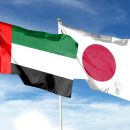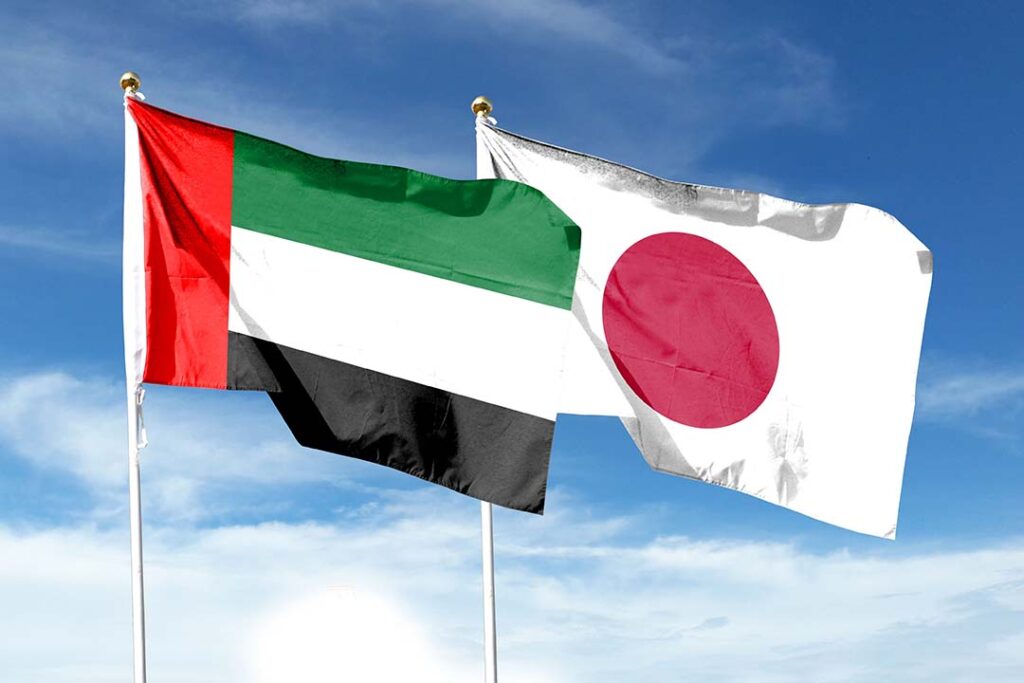Koichi Takano, Managing Director of Japan External Trade Organization (JETRO) Kuala Lumpur shares the strong and evolving economic partnership between Malaysia and Japan. With extensive experience in fostering bilateral trade, Takano provides insights into the current business climate, JETRO’s strategic initiatives to enhance collaboration and the exciting prospects for Japanese companies in Malaysia.
Bridges: How would you describe the current economic partnership shared between Malaysia and Japan?

Takano: As of 2024, Japan’s position remains as one of the top 10 investors in Malaysia. The economic partnership shared between Malaysia and Japan appears strong, positive and promising, with a total of more than 1,600 Japanese companies operating in Malaysia. According to JETRO’s FY2024 Survey on Business Conditions of Japanese Companies in Asia and Oceania, Japanese companies in Malaysia have shown improved business sentiment for the fourth consecutive year, with profitability surpassing the ASEAN average. This positive sentiment further underscores the strength of the bilateral partnership.
The manufacturing sector, especially in transportation equipment and parts, food, electronics and electrical (E&E), and general machinery, continues to thrive, suggesting continued growth and collaboration opportunities. Additionally, the expansion of Malaysia’s middle class is driving increased investment in areas such as Japanese food products, Japanese restaurants, healthcare, education, and IT. Japanese services, renowned for their safety, security, and high quality, are well-regarded in the Malaysian market and are anticipated to see continued growth.
The transition to a digital and green economy in Malaysia, driven by initiatives like the New Industrial Master Plan 2030 and the National Energy Transition Roadmap, is significantly reshaping the business landscape. This transformation is prompting Japanese companies to adapt to the evolving environment. Japanese firms are making notable progress on key projects in renewable energy, hydrogen development, and carbon capture, utilization, and storage (CCUS). Moreover, there is an increasing trend of utilizing tax incentives, including the establishment of regional headquarters in Malaysia. Japanese companies are also recognizing Malaysia as a more cost-effective alternative to Singapore and a strategic partner in decarbonization and digitalization. These efforts not only highlight the adaptability of Japanese companies but also underscore the potential for enhanced collaboration and investment between Malaysia and Japan, fostering a stronger and more resilient economic partnership.
The economic partnership shared between Malaysia and Japan appears strong, positive and promising, with a total of more than 1,600 Japanese companies operating in Malaysia.
Koichi Takano, Managing Director of Japan External Trade Organization (JETRO) Kuala Lumpur

What steps is JETRO Kuala Lumpur taking to strengthen the relationship?
As an effort, JETRO gathers, organizes, and offers comprehensive and up-to-date information on policies and systems related to the business environment, such as strategic sector incentives and tax incentives. This helps Japanese companies understand the Malaysian market better, leading to more informed investment decisions and, consequently, enhancing the partnership between Japan and Malaysia.
Additionally, we offer a comprehensive business consultation platform service free of charge to support Malaysian and Japanese businesses looking to expand their operations and partnerships. This initiative lowers the barrier for businesses to seek expert advice, encouraging more companies to explore and expand their operations in both countries.
Most importantly, JETRO always takes ‘building connections’ as our mission. Especially with Japan hosting the Expo and Malaysia as the ASEAN Chair this year, leading to active interaction between government officials and business professionals. JETRO is leveraging this opportunity to organize and support events that strengthen Japan-Malaysia business relationships in areas like decarbonization, and startups.
In the realm of startups, we are particularly focused on encouraging collaboration between emerging companies in Japan and Malaysia to drive innovation and open new markets. We aim to go beyond just providing information by actively building robust business connections between Japan and Malaysia through business matching events and on-site support.
We aim to go beyond just providing information by actively building robust business connections between Japan and Malaysia through business matching events and on-site support.
As the ASEAN Chair in 2025, Malaysia is well-positioned to lead the region’s decarbonization initiatives, and its collaboration with Japan’s “Asia Zero Emission Community” (AZEC) initiative is accelerating. JETRO has also compiled a catalogue of Japanese companies contributing to decarbonization and is supporting their expansion into Malaysia.
What have been some of your personal highlights living and working in Malaysia?
This is my second assignment in Malaysia, with my first posting dating back to 1997. Even back then, I was impressed by many aspects of life here – easy communication, affordable living costs, safety, and of course, the delicious food. I had many opportunities to make friends, which made my experience even more enjoyable and deepened my fondness for Malaysia.
Now, returning after 25 years, I have noticed significant changes, especially in the cost of living. At first, I was surprised by how much prices had increased. But upon reflection, it’s clear that Malaysia has experienced steady economic growth over the years, and such changes are a natural part of the progress. In fact, it made me realize how relatively stagnant Japan’s growth has been during the same period.
This renewed experience has reshaped my perspective on Malaysia. I now see it as a dynamic and evolving country with much to offer and much to learn from. It has reinforced my belief in the importance of strengthening our relationship as equal partners, and I feel fortunate to witness Malaysia’s continued development firsthand.
This renewed experience has reshaped my perspective on Malaysia. I now see it as a dynamic and evolving country with much to offer and much to learn from.
What does JETRO have planned this year in terms of events, initiatives, etc.?
In the first half of the year, we have been diligently involved in several key events, including the JS-SEZ seminar and Energy Asia 2025. At the JS-SEZ seminar held in Singapore this February, we delivered a presentation on the trends of Japanese companies in Malaysia, with a particular focus on Johor. The event was attended by approximately 100 representatives, including those from Japanese companies based in Singapore considering business opportunities and relocations to Johor. We believe the presentation has greatly benefited the attendees by serving as an essential tool for Japanese investors to navigate the Malaysian business landscape effectively and make strategic, informed decisions.
Additionally, we made significant contributions to the Energy Asia 2025 event by showcasing the efforts of Japanese companies in promoting decarbonization in Malaysia. JETRO set up a promotional booth featuring the aforementioned catalogue of products and services from 49 Japanese companies dedicated to reducing carbon emissions.
In the second half of the year, we will exhibit at the world’s largest Halal trade show, MIHAS 2025. This event will showcase a variety of Halal-certified Japanese F&B products. Besides, we will recruit Japanese suppliers and Malaysian companies dealing with Japanese products to become co-exhibitors under the Japan Pavilion. This initiative aims to raise awareness and promote Halal-certified Japanese products, tapping into the global Halal market. In addition, JETRO is preparing to launch several strategic projects in collaboration with prominent Malaysian firms specializing in advertising, e-commerce strategy, Halal B2B platforms, and cosmetics distribution. These partnerships are expected to play a vital role in enhancing market awareness and strengthening online visibility for new Japanese products entering the Malaysian market.
Throughout the year, JETRO actively coordinates a buyer invitation program aimed at fostering business relationships between Japan and Malaysia.
Moreover, we will be launching the J-StarX Malaysia Deep Tech Accelerator Programme (MYTech) 2025, which aims to support Japanese deep tech startups in their expansion into the Malaysian and ASEAN markets. This initiative builds upon the successful structure of previous programmes, such as Digital Transformation Accelerator (DXA), with a renewed focus on deep tech startups with solutions related to advanced manufacturing, artificial intelligence (AI), health and wellness, and semiconductors and data centers. Additionally, our Global Acceleration Hub (GAH) is in the process of finalizing partnerships with local government and private entities to support Japanese companies. While the MYTech programme focuses on deep tech startups, the GAH provides broader support for Japanese companies across various sectors, facilitating their entry and growth in the Malaysian market.
Beyond supporting Japanese companies entering Malaysia, we will also continue to promote J-Bridge and Invest Japan, two key platforms designed to help Malaysian companies and startups explore opportunities and establish entities in Japan. J-Bridge offers both online and offline business matching support, including invitations to Japan for participation in exhibitions, pitching events, awards, and hybrid accelerator programs, while Invest Japan provides online consultations service. As part of our ongoing efforts to accelerate global open innovation between Japanese corporates and startups, we are also planning a reverse pitch event in Malaysia this fiscal year.
Throughout the year, JETRO actively coordinates a buyer invitation program aimed at fostering business relationships between Japan and Malaysia. For instance, our F&B team invites high-potential buyers from non-Japanese companies (including retailers, importers, and hotel/restaurant groups) in Malaysia to travel to selected prefectures in Japan. These visits are tailored to their products of interest and preferences, allowing them to engage in business meetings, company and production site visits, and market tours. Recently, we have also invited a non-Japanese company from Malaysia to participate in the Japan Health event at the Osaka Expo 2025.
Furthermore, we consistently participate in various exhibitions to promote one of our key services, Japan Street. This business matching platform and online catalogue is designed to assist Malaysian buyers in discovering exclusive Japanese products and establishing direct connections with reputable suppliers.
www.jetro.go.jp/jetro/overseas/my_kualalumpur
www.jetro.go.jp/en
JETRO – Japan External Trade Organization









